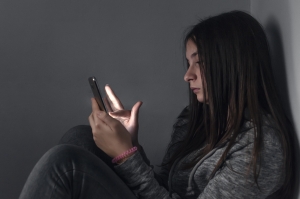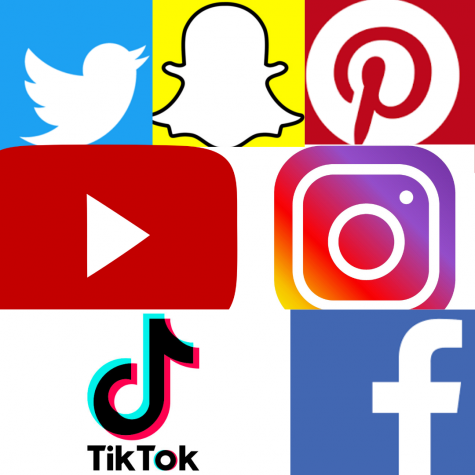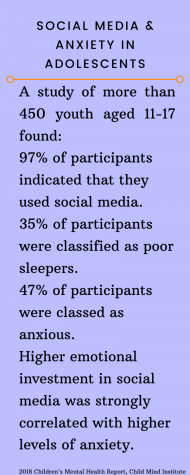The Trials and Terrors of Social Media: How Social Media has Influenced Students During Quarantine

Photo Taken From Greater Good Magazine
A student scrolls through social media unaware of its influence on her. The effects of social media can be harmful if screen time is not moderated.
In a world where internet fame is increasingly easier to gain, it’s easy to get caught up in social media. There are a few benefits of using social media, but if it isn’t moderated, social media can be harmful to students who use it frequently.
Jen Belnap, a parent at Sage Creek, has listened to the research and tries her best to guard her daughter, a senior at SCHS, from using social media frequently.
“All [social media] is fleeting; it’s not lasting and it doesn’t contribute to society like conversation. Social media has its benefits but it’s gotta be used in moderation,” stated Belnap.
Social media has not only lowered students’ self-esteem but has also seriously impaired the conversation and listening skills of today’s generation.

“I think in this day and age with the world practically on fire the worst way to be influenced [by social media] is to be influenced with misleading information. It’s very easy to fall under the wrong influence and be misled,” said junior Brooklyn Branson.
Fake news spreads faster than real news which can influence students dangerously by giving them false information or alienating them from other students because they believe ideas derived from false media.
“It took the truth about six times as long as falsehood to reach 1,500 people,” according to a 2018 study led by MIT’s Sinan Aral.
Students should be aware of the media they consume before immediately choosing a side or idea to support, whether it be political or social.
The way social media feeds information to consumers can cause disunity and conflict between different viewpoints and ideologies due to easily accessible fake news and rumors.
Another aspect of social media that can be a dangerous influence is what’s “trending”.
An internet trend that blew up over quarantine was fitness YouTuber Chloe Ting’s “2 Week Shred” which glorifies society’s beauty standard of being skinny by encouraging viewers to lose weight over a short period of time.
This increases body image issues and makes students think that if they aren’t skinny or able to lose weight in only two weeks, there is something wrong with their body.
This fitness trend does not encourage the idea that having a different body type is positive. It makes looking skinnier the goal and anything different than that can be seen as undesirable or unhealthy to young viewers.
“Scrolling through my Instagram and my TikToks, I see gorgeous women all the time. It’s definitely hard like ‘oh I wanna look like her, she’s so perfect’…It’s definitely been hard but I think you just have to kind of remind yourself that everyone has their issues, no one’s perfect, and you’re beautiful the way you are,” said junior Brooke DeGraan.

Because social media platforms often promote one body type over others, impressionable students’ self-esteem can be affected if they don’t look like the people who are glorified by social media.
“When [quarantine] first started I’d definitely say I had no motivation because of it, and it was really consuming,” DeGraan said. “And I’d rather be on my TikTok or my Instagram for hours instead of get[ting] out of bed and do[ing] anything active.”
DeGraan struggled with the same thing many students have during quarantine: lack of motivation and a huge increase in screen time.
Too much time spent on social media can seriously affect mental health and studies have shown that it is directly linked to an increase in anxiety and depression in students.
These mental health problems can be intensified by comparison issues, low self-esteem, poor body image, and lack of sleep due to spending time on social media.
During the pandemic, many students are left feeling lonely and isolated.
The frequent use of social media magnifies this issue through decreasing conversation skills, feeding students false information, and presenting an unrealistic beauty standard to its young viewers.

